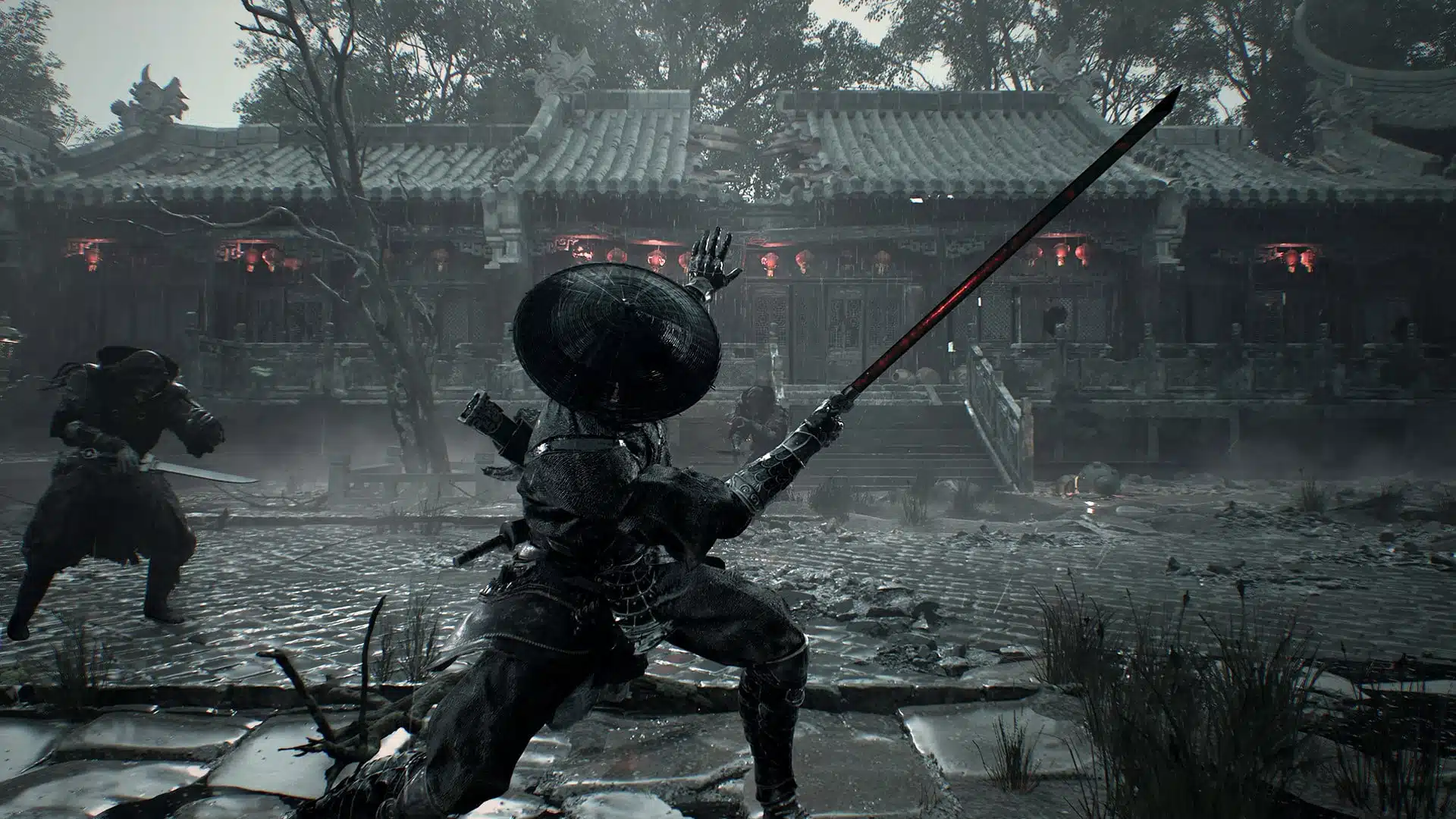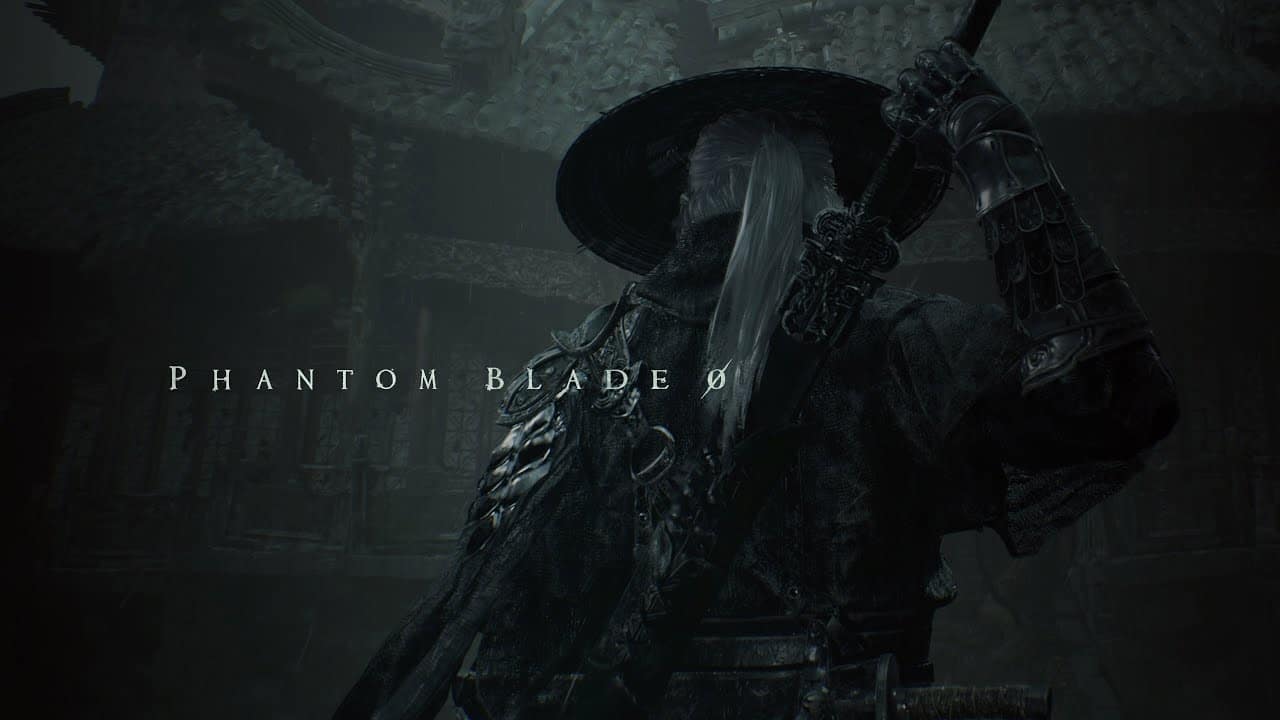On the occasion of the 2025 Summer Game Fest, I had the opportunity to meet the developers from S-GAME studio, creators of the highly anticipated Phantom Blade Zero. Just a few hours before Geoff Keighley’s hosted conference, I was warmly invited to exclusively discover their project at their Los Angeles headquarters. Although Chinese studio S-GAME, based in Beijing, did not have an official booth at the event, they now have an American branch alongside their Hong Kong subsidiary, enabling them to maintain a strategic presence on Western soil. This visit allowed me to confirm that what we’ve seen so far is genuine; there’s nothing fake about it, and players will need to brace themselves because the challenge is very real. However, rest assured that everything in the game is designed for proper progression. Here is an account of my morning spent with Phantom Blade Zero under the California sun.
THE ART OF MOVEMENT, IN SERVICE OF THE GAME
The remarkable fluidity of the encounters stems from extensive work on animation: each transition between actions is seamless and natural, without any visual breaks. The game incorporates contextual executions, dynamic interactions with the environment, and combat involving multiple simultaneous adversaries — all contributing to immersion and a sense of an interactive kung-fu film. This is the studio’s ambitious goal: to provide a video gaming experience that closely mirrors martial cinematic language while maintaining its rigor and beauty. To achieve this objective, S-GAME invests heavily in both human resources and technological means. With over a decade of mobile gaming experience, the studio now mobilizes around 150 developers for an ambitious AAA project powered by Unreal Engine 5. However, Phantom Blade Zero is not expected to launch until 2026, not in 2025.
Phantom Blade Zero, despite incorporating certain gameplay elements, is neither classified as a Souls-like nor a beat ’em up in the vein of Devil May Cry. Instead, it presents a unique hybrid formula that combines an intuitive yet intense combat system with exploration and progression mechanics typical of RPGs. The inclusion of skill trees, side quests, an evolving arsenal, and multiple endings contributes to a rich, immersive, and replayable experience. A distinctive feature of the game is its goal to make kung-fu accessible through gameplay. According to Soulframe Liang, the creator, this experience mirrors disciplines such as skiing or surfing, emphasizing constant balance, timing, and fluidity. Upon picking up the controller, players encounter an uncommon level of intensity characterized by wall runs, rapid teleportations, and choreographed finishing moves. The game alternates between moments requiring absolute concentration and immediate instinctive responses. While mistakes are met with consequences, successful maneuvers yield significant satisfaction. Fans of Hong Kong cinema and Wuxia will recognize familiar references within the game.
NI SOULS-LIKE, NI BEAT’EM UP
Creating a martial arts game without compromising the essence of Wuxia was a significant challenge for S-GAME. The developers traveled extensively across China, engaging with kung-fu masters, Shaolin monks, and Guangdong lion dance troupes. These interactions enriched the game by incorporating authentic gestures through motion capture from genuine martial artists. To direct the main choreographies, the studio hired Kenji Tanigaki, a renowned collaborator of Donnie Yen on films such as SPL, Swordsmen, Flashpoint, and most recently Sakra. However, transforming this art into an interactive experience presented another challenge: it was not about reproducing simple movements but enabling players to embody and feel them in real-time with precision and intensity.
Visually, Phantom Blade Zero is impressive. Through meticulous 3D scanning, environments, buildings, and objects inspired by traditional Chinese architecture gain authenticity. This is elevated by a unique artistic direction that blends steampunk with Chinese mythology. Technically, the PS5 Pro version tested was remarkably smooth, with no frame rate drops. On standard PlayStation 5, developers aim for a 2K resolution with a frame rate fluctuating between 40 and 60 fps, while the PC and PS5 Pro versions promise an even smoother and polished experience. In essence, Phantom Blade Zero is not just a visual mirage; it’s an ambitious work thought out in every detail, seeking to blend tradition with modernity, aesthetics with gaming rigor. Based on this initial hands-on experience, the studio seems set to succeed. We’ll have to wait until 2026 for definitive confirmation.
At the 2025 Summer Game Fest, I met with developers from S-GAME studio in Los Angeles to preview their upcoming game, Phantom Blade Zero exclusively. Although based in Beijing with a new US branch and Hong Kong subsidiary, they are targeting a significant Western presence. Phantom Blade Zero stands out by integrating martial arts with video game mechanics, aiming to capture the cinematic style of Wuxia films while maintaining gameplay integrity. The game is neither a typical Souls-like nor a beat ’em up like Devil May Cry; instead, it offers a hybrid formula that combines an intuitive yet challenging combat system with RPG elements such as skill trees, side quests, and multiple endings. S-GAME has worked diligently to ensure authenticity by collaborating with martial arts masters across China, using motion capture technology, and hiring renowned action choreographer Kenji Tanigaki (known for his work with Donnie Yen). The game’s objective is to enable players to experience fluid, precise martial arts through real-time controls, emphasizing balance, timing, and rhythm. Visually, Phantom Blade Zero is striking, utilizing detailed 3D scanning of environments inspired by traditional Chinese architecture blended with a steampunk aesthetic. It promises smooth performance on PlayStation 5 Pro (60fps), standard PS5 (2K resolution, 40-60fps), and PC platforms, set for release in 2026.
Phantom Blade Zero stands out as a genuine demonstration of strength, technical mastery, and artistic prowess from the Chinese studio S-GAME, marking their first AAA title. This initial hands-on experience reveals a game with solid gameplay, captivating stage design, and a coherent yet unique universe. Each element seems designed to immerse the player in a fluid, demanding, and intensely rhythmic experience where every movement counts. The developers aim to create a kung-fu game faithful to what Wuxia films have always offered: action, elegance, finesse, and a certain art of movement. With an audacious artistic direction, a refined combat system, and rare attention to animation and gameplay sensation, Phantom Blade Zero establishes itself as one of the most promising titles in the upcoming video game landscape. Although its release is likely to be delayed until 2026, what I’ve seen and played hints at a game with remarkable potential. If this preview version accurately represents the final product, S-GAME may be shaping the future of a significant name in action-adventure gaming. Patience…
Have any thoughts?
Share your reaction or leave a quick response — we’d love to hear what you think!


